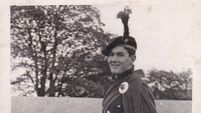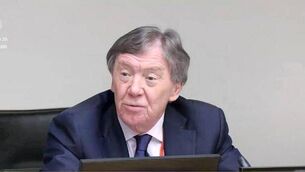Special Report: Awareness is key to protecting young people from Waterford's illegal drugs trade
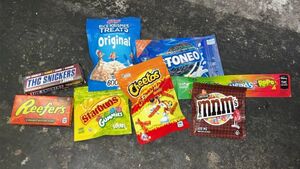
Some of the drugs are remarkably similar to well known sweet brands. Pic: Waterford Gardaí
The illegal drugs trade is a multi-million euro industry that presents one of the biggest challenges to the Gardaí in 21st century Ireland.
Waterford News & Star met with members of the force in Waterford Garda Station who are at the cold front of the fight against the illegal drugs trade in the Déise.
They highlighted how easy it is for people of all ages to access illegal drugs and also how it's a problem that affects all sectors of society and people of every type of background.
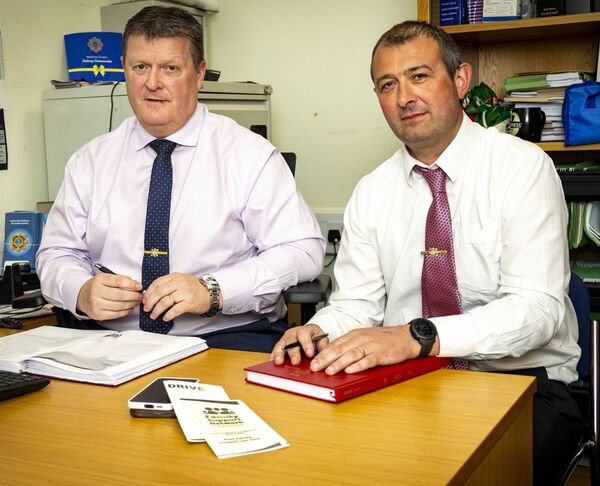
In particular, they highlighted concerns over accessibility for young people to get drugs and how it's a societal issue that can only be effectively addressed by people working together within their communities and in conjunction with the Gardaí, to report any incident they feel might be related to illegal drugs.
Detective Inspector Donal Donohue is the nominated lead authority within the drugs unit for the entire city and county of Waterford and he is assisted by a team that includes Detective Sergeant Mick Bourke and Sergeant Deirdre O'Neill.
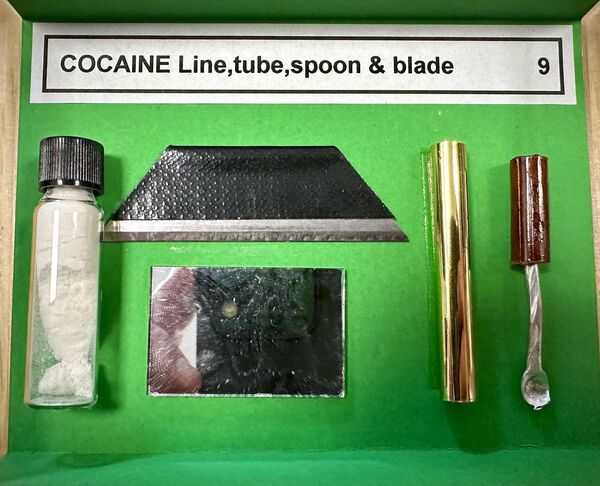
Speaking to us in Waterford Garda Station they outlined the extent of the problem locally and actively encouraged members of the public to contact them if they know or fear that someone close to them may be involved in either taking or selling drugs.
"I think we need to get more into schools, definitely into secondary schools," said Det Insp Donohue. He was involved in a programme named HEED (Health, Education, Enforcement and Drug Driving) that was set up to raise awareness and educate people about drugs in GAA clubs. It was a great success and was ultimately rolled out to other sports organisations and some clubs are asking the Gardaí to present the programme again.
"From the files we’re getting drugs are literally across all walks and parts of society," said Det Insp Donohue. “All sporting clubs, schools, nightclubs, concerts – they are available everywhere unfortunately."
"Drug driving is a big one as well," said Sgt O'Neill.
"That's something our JLOs (Juvenile Liaison Officers) will give to the schools; our community policing – there is a drugs programme that they can give to schools," she said.
"The HSE.ie is also really good and the Drive Project that the Inspector is involved in," she added. “It’s really about getting a conversation going and if people want to seek out advice there are loads of agencies out there that will offer help and support.”
A big part of the challenge around around tackling the drugs problem is that of drug-related intimidation and an inter-agency initiative called the Drive Project (Drug-related Intimidation and Violence Engagement) is specifically aimed at addressing that challenge.
"That is an inter-agency project with systems and structures to respond to drug-related intimidation," said Det Insp Donohue.
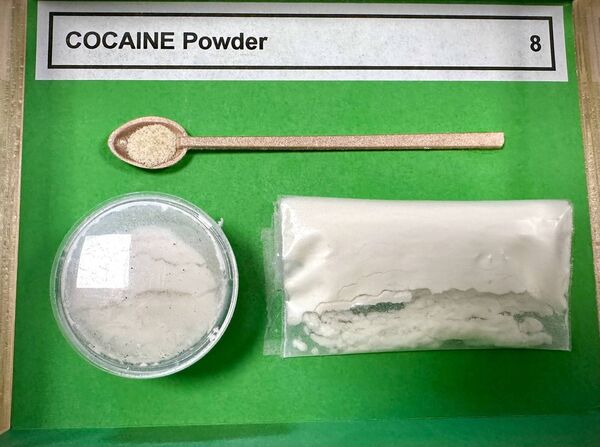
“It’s run by the Drugs Policy Refugee and Inclusion section in the Department of Health and the objective is to support people who experience drug-related intimidation or are impacted by drug-related intimidation," he added.
"So, in a lot of cases where say, ‘I owe money’, it’s actually my family that’s affected more than me. The individual gets into it, knows what he’s getting into, knows he’s getting the debt but if that’s not paid, while he is maybe intimidated or threatened or whatever, if he doesn’t pay it transfers over to the family and it’s these innocent people who are experiencing the difficulties.”
When asked what the worst example of such intimidation is he said it can vary.
"“Well, I won’t give specific examples but in a lot of cases there is criminal damage to property, there are assaults, threats to kill or cause serious harm, demanding money with menaces, blackmail and extortion – they are all as a result of the intimidation that the families are experiencing," said Det Insp Donohue.
In a lot of cases people are afraid to make complaints for fear of repercussions, however, if a person wants to remain anonymous while making a complaint or reporting an incident that will be the case, and the Gardaí have systems in place to protect people who do provide information.
"In a lot of cases people are afraid to make complaints," said Det Insp Donohue.
"Where they don’t make complaints our hands are somewhat tied," he added.
"Where there isn’t a complaint it minimizes what we can do but where there is a complaint we can search, execute warrants, make arrests, send a file to the DPP," he added.
However, he also pointed out that even if a person doesn't want to make a formal complaint there are still systems in place through which the Gardaí can offer people support.
"The supports are in the form of HSE support, local drug and alcohol taskforce coordinators, our own DOCB [Drug and Organised Crime Bureau] can offer supports," he said.
"You have the Family Support Agency in Lisduggan – they are very good and very helpful," he added.
Sgt O'Neill also highlighted the South Eastern Family Support Network as being "a very good organisation" offering support to people.
“The South Eastern Family Support Network are really very, very good; they are excellent," she said, highlighting the fact that many of those involved with the organisation have hands-on experiencing of having people close to them get involved in drugs.
"They know exactly what to do and they give really good advice about not enabling your child," she said. "
"Don’t give in to them, don’t give them the money; feed them if you have to but it's time it’s time for tough love," she added.
“They also have a chat with the Detective Inspector but very often it’s mammy’s first experience when her windows get put in, that there’s something wrong in the house, and then they start looking and they see that yeah, he never has any money, or he had loads of money that week or his new runners that I bought him are gone and stuff like that," said Sgt O'Neill.
“If you report it and you want to remain anonymous, you will remain anonymous," said Det Insp Donohue.
"What we will do then is we will take whatever information you’re giving us, but we will also carry out our own surveillance and conduct our own enquiries," he added.
"It won’t be just solely based on what you’re telling us, we will conduct our own enquires within the community and also carry out covert surveillance.”
He went on to comment: "If we are satisfied that there is drug dealing or drug taking being conducted in a particular place we will apply to the judge for a warrant and the search is conducted and if drugs are found the investigation continues on and someone will be arrested, questioned and a file will be prepared for the DPP. If drugs aren’t found well that’s the end of the road.”
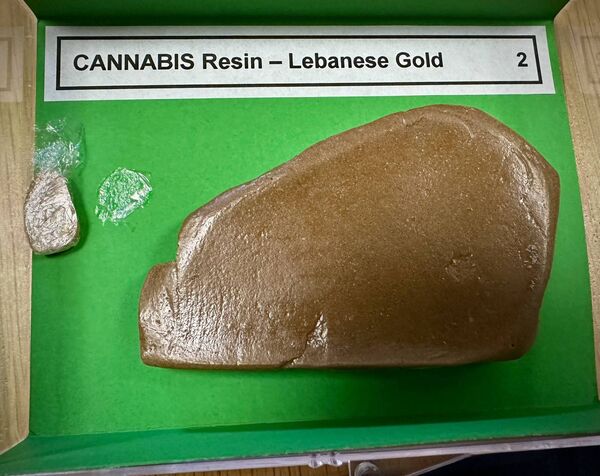
Sgt O'Neill commented: "If something gets reported, everyday all the incidents are classified, and if the Det Inspector thinks there’s drug-related intimidation he then liaises with them and he might refer them to me so they do get support without the uniforms, in-house.”
“Within every division there is a nominated Detective Inspector to deal with drug-related intimidation so where a complaint is made, because of whatever, that will be investigated," explained Det Insp Donohue.
"I will make contact either directly or through the investigating members with the individuals involved to establish if they want to make a complaint," he said. "If they want to make a complaint that’s fine. We will still put in all the supports that are available in the form or protection logs, we will put a premises alert on the house, all of the services of the crime prevention officer are offered. They are not always taken up by people but when they are Deirdre will liaise with them."
In such circumstances Sgt O'Neill will give family members advice on home and personal security measures.
“Really, it's to encourage them that even if your child might be involved in criminality the Gardaí are still there to support and help you and phone 999 if you need us," she said.
"It doesn’t matter if you phone us 20 times," she added.
The Gardaí would encourage people to make complaints, as Det Insp Donohue outlined: "An Garda Siochana’s mantra is not to pay any money. We would love people to make complaints because it allows us to get involved more deeply, but where they don’t make a complaint we still offer those supports and that’s something we want people to know. We are still there for them. Just because they don’t make a complaint doesn’t’ mean that we close the door on them that’s not the case.”
"Some families don’t even know their son or daughter has been taking drugs until the person comes knocking on their door – they don’t even know," he said.
"Out of fear or reprisal they might not want to make a complaint but we are here for those people too even if they don’t wish to make a complaint.”
Det Sgt Bourke said confidentiality is a very important aspect of what the Gardaí do in their fight against drug-related crime.
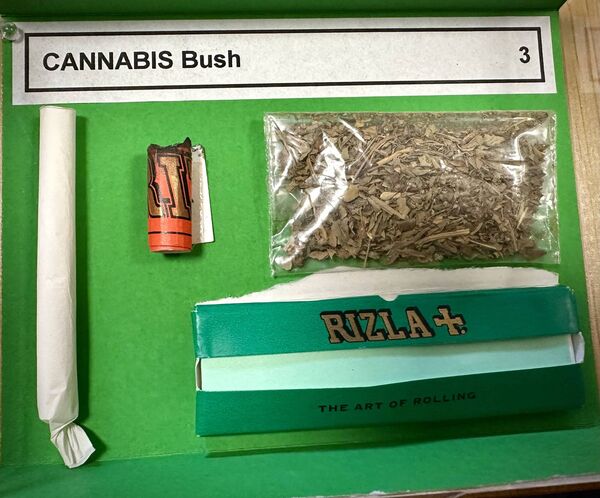
"I think the confidentiality is an important part of it," he said.
"If we did react to information you provide it could point back to you, you know if we went out with the cavalry and we go searching houses, but that’s why we don’t," he said.
"We work all around that and if you want to remain anonymous you will remain anonymous," he added. He also pointed out that if someone knocks on a person's door demanding money for a drug debt owed by a family member then "the game is up anyway".
"Well if someone has called to your door the game is up," he said.
"If someone wants to remain anonymous they will remain so, but if they’ve called to your door they know already," he added.
Part of the problem for families is that often there might not be any immediate tell-tale signs that a family member is getting involved in drugs or owes someone a drug debt. However, sometimes there are little 'red flags' that people, and parents in particular, can be aware of.
“There are a few but there might also be none as well," said Sgt O'Neill.
"If they pull away from their friend group, if they are moody, or if there is change of character," she added.
Det Insp Donohue then added: "Change of friend groups, lack of friends, not doing sports anymore - they are all red flags, definitely."
When asked, Dep Insp Donohue said it would be hard to estimate the net worth of the illegal drugs trade in Waterford and nationally, however, Sgt O'Neill said there is a hierarchy: "It’s safe to say that the lads at the top are the ones making the money. You have this filtered system and the dealers we see here in Waterford and the people we are engaging with are very often failed drug dealers and their debt was taken over. They might owe a lot of money but sometimes they might only owe a grand or so and they are being intimidated for that.”
“The level we see, the €10m that was seized the other day, unfortunately because we are an island that’s probably not an unusual scenario," she said, referring to an incident in which Gardaí from the National Drugs & Organised Crime Bureau (GNDOCB) and Waterford Drug and Crime Units seized €10.6 million worth of cocaine in a series of operations carried out on Tuesday, March 18, when Gardaí intercepted a heavy goods vehicle on the M9 in County Kilkenny, shortly after 10am and searched two business premises and a residential address in Waterford.
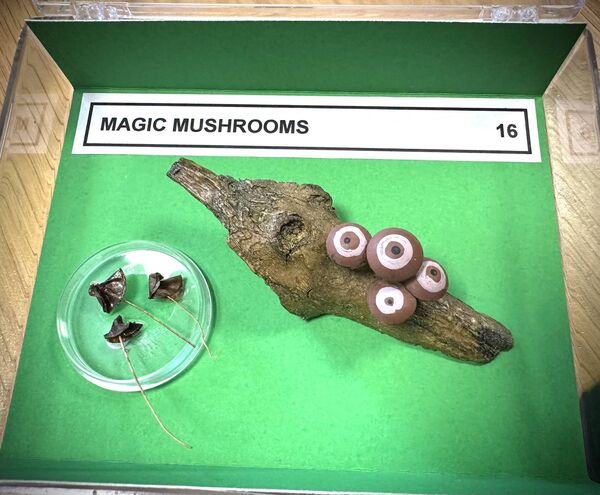
"There is a lot of money involved," she said, before adding that the street price of cocaine had definitely come down in price compared to what it was 10 or 15 years ago, making it far more accessible.
Det Insp Donohue said the street value of cocaine is now around €70 a gramme and cannabis is around €20 a gramme.
The availability and range of drugs available has also changed, as outlined by Sgt O'Neill: "Your MDMA tablets or your ecstasy tablets, which we would remember when they came out in the 90s, they were a big thing and were about £20, and now you can get like three for a tenner.”
“There's the big danger with uncontrolled drugs is that you don’t know what’s in them," said Det Insp Donhoue.
"Even the cocaine, there could be alcohol and cement in it," he added.
One example the Gardaí gave was of a person who was arrested in Waterford City who had €750 in cash on him and he had some deals left in his possession. On analysis those deals were found to have baby powder in them.
“There are consultants in A&E who would say the amount of stroke victims presenting in their 30s has increased and that drug use is contributing to it," said Sgt O'Neill.
"That’s not been established as such, but you often see a trend," she added.
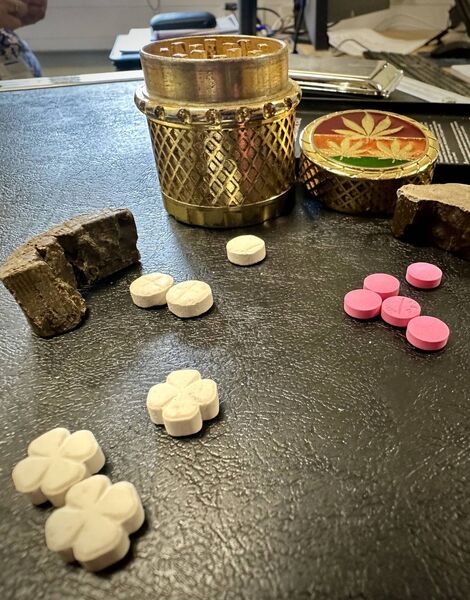
Cannabis is much more common now than a few years ago and cannabis herb and resin have the same potency.
"Cocaine is more and more prevalent and we’re seeing more and more of it on file," said Det Insp Donohue, while Det Sgt Bourke commented: "A lot of youngsters are trying it. That’s the biggest thing but you don’t know what you’re getting. When the coke comes in and then goes right down through all the dealers, when you get it on the street you don’t know what’s in it.”
"There are people taking cocaine who are working their day," said Det Insp Donohue. "They are taking it at lunchtime and going back to work in the afternoon. Professional people.”
Sgt O'Neill spoke of the active ingredient in cannabis, THC, and said that has likely been genetically modified to be much more potent now than it was in the 80s and 90s.
"Back in the 80s, 90s it was probably around 10 per cent but that could be up to anywhere around 30 or 40 per cent now," she said.
"So the hallucinogenic affects of cannabis are much higher, psychosis is higher in young people as well from prolonged use of cannabis," she added.
Vapes are another area of concern and Sgt O'Neill said it's possible to get THC liquid for them.
"There have been a few cases in Waterford where kids have been hospitalised and there have been incidents where children in schools have had their lockers searched, so it’s in the schools and anyone who thinks it’s not, well it is," she said.
Det Insp Donohue said there has been a "huge" increase in drug driving and at the scene people can be tested using the drug draeger.
"That will tell us whether there are drugs in their system or not," he said.
"If there is they can be brought back here and a blood sample will be taken and sent to the medical bureau for road safety," he added. The test is done for three types of drugs and can give a positive return for cocaine, amphetamine and cannabis.
“We have definitely seen an increase of drug driving, partially because we’re looking for it more than ever before and because we have new drug draegers," said Det Insp Donohue.
"There is an emphasis on drug driving as well as drink driving," he added.
Some of the drugs available today are remarkably similar to ordinary sweets and for most parents they wouldn’t know the difference. It's another area of concern. Some of these drugs are designed to look like popular sweets and jellies and on first glance it's hard to discern the difference. Sgt O'Neill said the whole area of drugs and drug-related intimidation is something that needs to be discussed more openly in homes, schools and wider society.
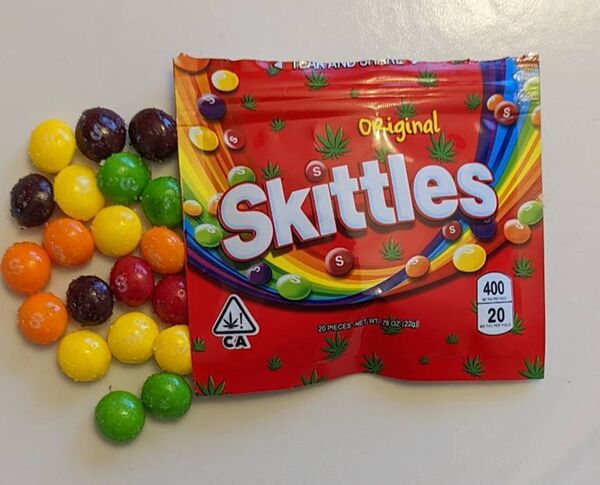
“We need to do anything to get the conversation going," said Sgt O'Neill, highlighting the need for parents to engage with their children about the dangers of drugs.
Det Insp Donohue also pointed out that anyone taking cocaine is also "feeding and fueling organised crime.”
It was a point reiterated by Det Sgt Bourke: “That €10m seizure the other day – that’s going somewhere you know.”
“We’ve seen it with other seizures," said Det Insp Donohue.
"It’s not just the person that’s caught with it. There is a network of people around that who are importing it and distributing it," he added.
"The guy that’s caught is generally the guy just picked out to drive the lorry or van, the scapegoat but the real people are the ones behind that.”
He also said there will definitely be more arrests in relation to the recent major drugs seizure.
"We are definitely looking at that and there will be arrests in relation to that," he said.
"We are looking at all the elements including the money laundering aspects of it and those who are organising, enhancing and facilitating organised crime within the county and maybe in Wexford also," he added.
For more information on drug supports for family members look up drugs.ie, peerfamilysupport.org, HSE.ie and Garda.ie
If you've been affected by illegal drugs or know of someone who is experiencing difficulty or drug-related intimidation there is help and support out there and Waterford Gardaí can be contacted in strict confidence on 051 305300.


